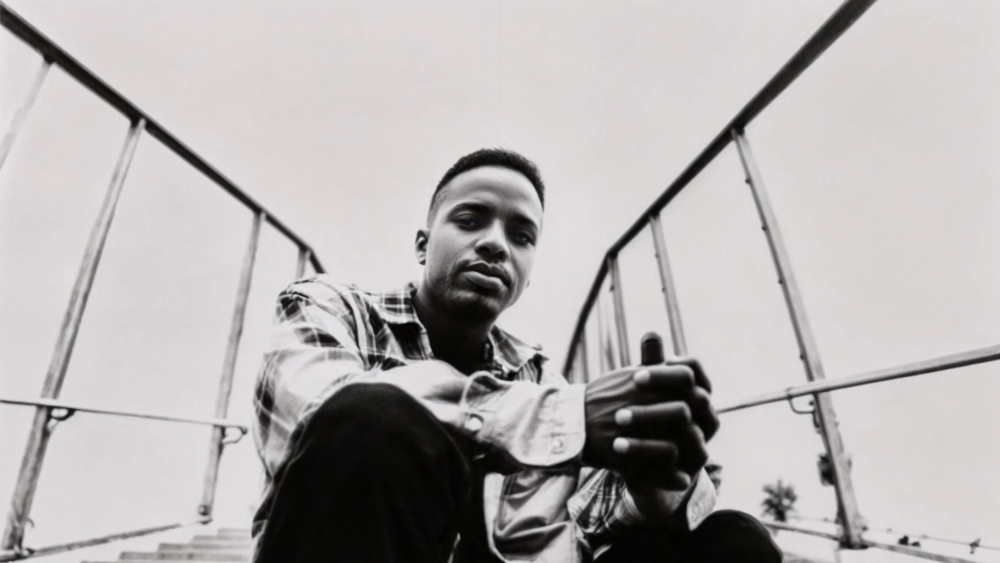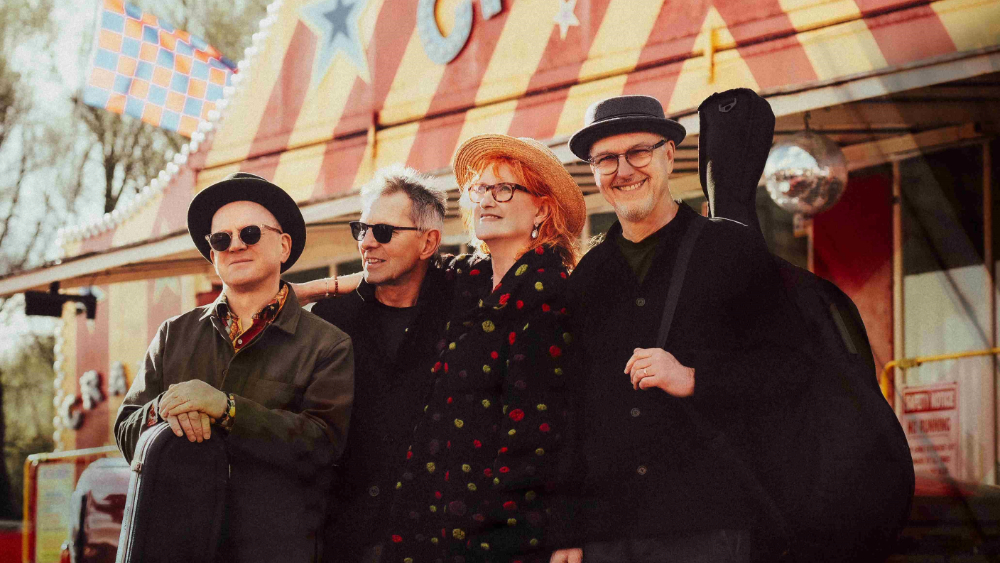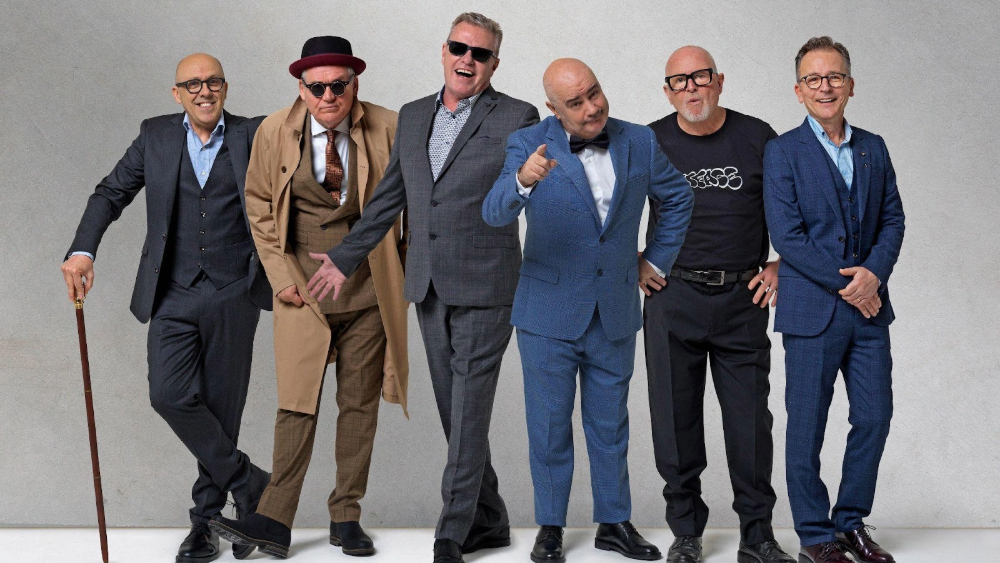‘I don’t enjoy listening [back] to the music I make,’ Floyd Dyce says with a laugh. Despite his usual reluctance, the songwriter and producer is delving into his discography for M. Given the ubiquitous hits under his belt, including Baby D’s Let Me Be Your Fantasy, he’s definitely in the minority in how he appraises his work.
‘I realise it sounds confusing,’ Floyd continues. ‘But I think sometimes you’re so critical of yourself that you just believe the next track you make will be better, the next one will be it.’
Chasing commercial success, though, has never been a motivator for Floyd, whose music career spans more than three decades. Baby D’s biggest tracks — Let Me Be Your Fantasy, So Pure and I Need Your Loving (Everybody's Gotta Learn Sometime) — were born out of his lengthy affiliation with Production House Records, a Motown-esque hit factory where Floyd worked as in-house producer for multiple acts including the House Crew and The Brothers Grimm. These projects provided Floyd with a platform to perfect his marriage of bass, melodies and samples, with Let Me Be Your Fantasy a creative zenith.
‘I just wanted it to do well in the underground scene — and it did!’ Floyd tells M. ‘But then, as songs sometimes do, it took on a life of its own. Ultimately, its success all came from what it had done in the clubs. It’s something I’m proud of, and it was amazing to be part of.'
Floyd’s passion for music was first ignited while he was at school in London. Inspired by reggae, jazz fusion and a love for The Jackson 5, Floyd used to study with the brother of Phil Fearon, a music producer and linchpin behind numerous bands in the ‘70s and ‘80s (prime example being the post-disco outfit Galaxy).
‘The [Fearons] always had music gear at their house, so we’d be able to mess about on instruments and make plenty of noise,’ Floyd recalls. ‘As we got older, we became more refined and started recording our own tracks. When we started making our own music in the ‘80s, it was the beginning of that Britfunk sound. All these different sounds and styles were swirling around us, and our mission was to decipher and then bring them together so they made sense.’
Having forged such a strong musical connection, it meant the more career success Phil enjoyed, the more Floyd was able to hone his skills, meet industry professionals and expand his network.
‘I started learning production, engineering and the technical side of the studio,’ Floyd explains. ‘All of a sudden, I found myself sitting next to people like Pip Williams, Status Quo’s producer, in a session. I would have to pinch myself and ask how I got there.’
'As songs sometimes do, Let Me Be Your Fantasy took on a life of its own.'
When acid house crash-landed in the UK in the late ‘80s, it almost wiped the cultural slate clean. While it sparked a revolution in the country’s nightlife, the subgenre provided Floyd, with the help of Production House, the opportunity to take his own music to the next level. Their sound, full of breakbeats and acid basslines, became more in tune with clubs such as Shoom and Future, before outdoors raves such as Sunrise took over.
‘Those raves offered me a light bulb moment,’ Floyd says now. ‘The technology was evolving, and the sounds of early house and acid house clicked with me. I used to call myself a soul head, and then everyone was wondering where I’d gone. It was to that acid house club with all the electronic noise.’
As well as DMS, Xstatic and the previously mentioned House Crew, Baby D were one of the many different Production House projects Floyd was involved in thanks to his role as in-house studio head. This was how he first met Dorothy ‘Dee’ Fearon, vocalist on Let Me Be Your Fantasy and wife of Production House co-founder Phil Fearon.
‘There was so much going on in the studio: everyone was working on their own projects,’ Floyd remembers. ‘As Baby D, we waited to see how [early single] Day Dreaming went down. Our plan was to come up with music and then throw some of it out there to test the reaction. We’d take influence from other producers, too.’
‘The raves of the late '80s and early '90s offered me a light bulb moment.'
Floyd wrote Let Me Be Your Fantasy as a response to the clubs he was frequenting at the time, where much of the music they played was sample-heavy. He was initially inspired to write something similar but ended up following his own path.
‘I had this idea for a sample in my head, but it came out completely differently,’ he says. ‘I got Dee to sing what I thought would be this burst of a sample, but then I wrote the song around it. Back then in the hardcore scene, there weren’t too many tracks with full-on vocals: it meant the label was unsure [about it]! But when it was played, people went mental.’
The track, which was originally released by Production House 32 years ago on Saturday (26 October), fared well in the clubs but failed to make much of an impression in the singles chart. Having continued to turn so many heads on dancefloors across the UK, though, London Records re-released it through their Systematic imprint two years later. On 20 November 1994, Let Me Be Your Fantasy hit number one.
‘Back when we first released it, no one considered the charts,’ says Floyd. ‘The song went on to sell so many copies thanks to the scene that inspired it. It was a real full-circle moment: it was a reaction to what was happening in the clubs, literally inspired by the whole rave movement.’
Two more top five singles followed for Baby D (1995’s (Everybody's Got to Learn Sometime) I Need Your Loving and So Pure), before the group’s only album, Deliverance, arrived in February 1996. By then, though, Floyd had started falling out with Production House, and only played a small part in the LP.
‘There was a lot going on that I wasn’t happy about,’ he says now. ‘With it came this loss of confidence where I fell out of love with music. It’s only in the last few years where I’ve enjoyed making it again.’
'Let Me Be Your Fantasy was a real full-circle moment: it was a reaction to what was happening in the clubs, literally inspired by the whole rave movement.’
As well as writing and recording, Floyd also has his own publishing venture, Little Dragon Music: ‘I’m a reluctant publisher, but at the same time I’ve met some great people through it. Life would have been very different if I hadn’t started working with [parent company] Bucks Music. As an emerging artist, the more control you have over your music the better. If you’re able to self-publish, it definitely gives you more bargaining power.’
Speaking about his experience of being a PRS member, Floyd recalls how the guiding hand of Phil Fearon helped convince him to join the society before he had any chart success.
‘Joining PRS was one of the wisest things I did,’ he tells M. ‘I know so many writers who weren’t members who missed out on royalties. It’s one of the best bits of advice I received and meant I got paid when we did have big hits.’
Floyd is currently keeping busy by playing live as the House Crew, while he’s also rebuilding his studio with a view to coming back with new productions. At the raves he now performs at, he relishes how different generations are coming together to enjoy the music.
‘It’s the same crowd you’d see back in the day, but now they bring their kids!’ he laughs. ‘It’s amazing to see the baton being passed on and this younger generation getting into writing and production.
‘The only thing I can advise people wanting to make music is to follow their heart,’ he continues. ‘Whether you’re making money or not, there’s a lot of joy and love to be found in music. If you have the urge to create, then do it — oh, and get a bloody good lawyer!’





